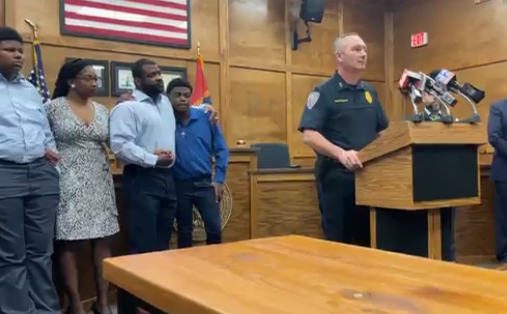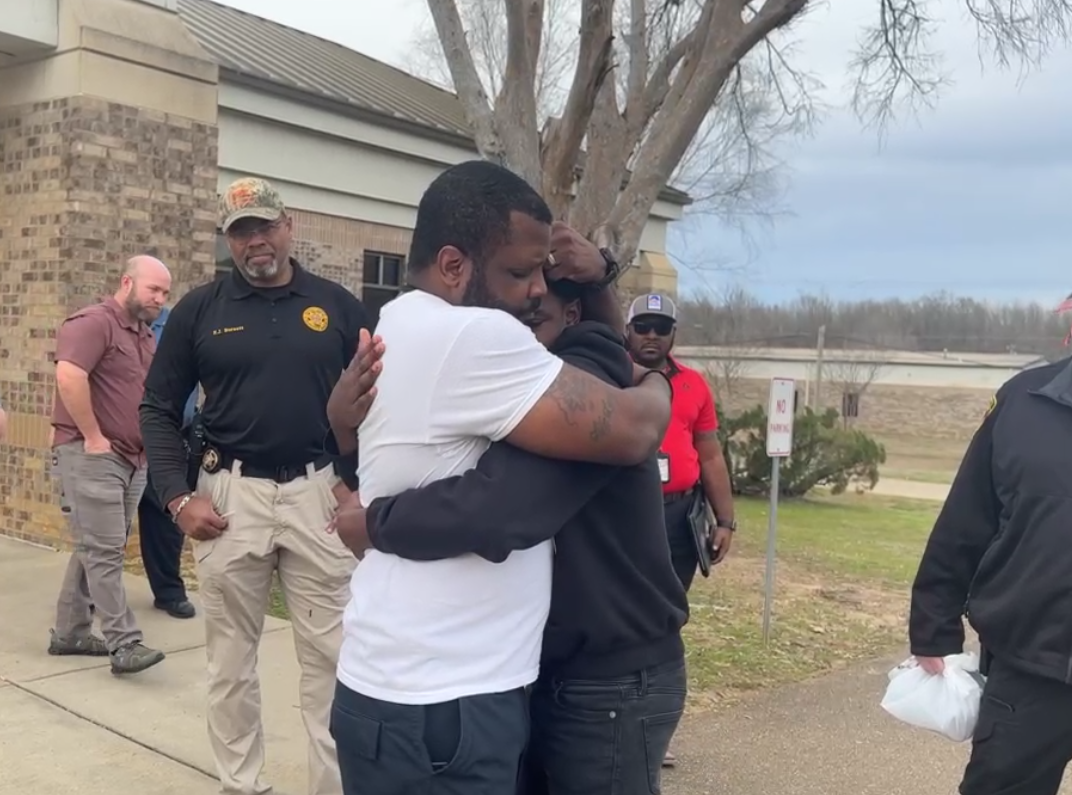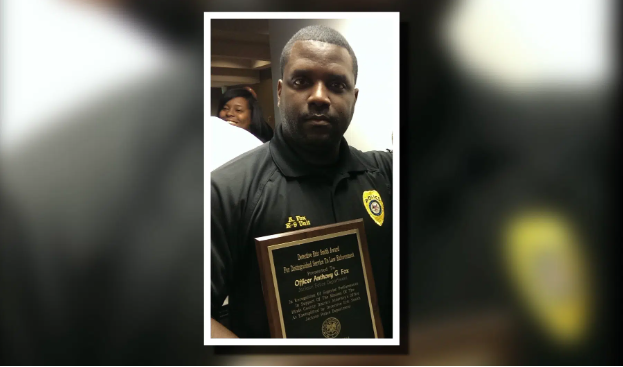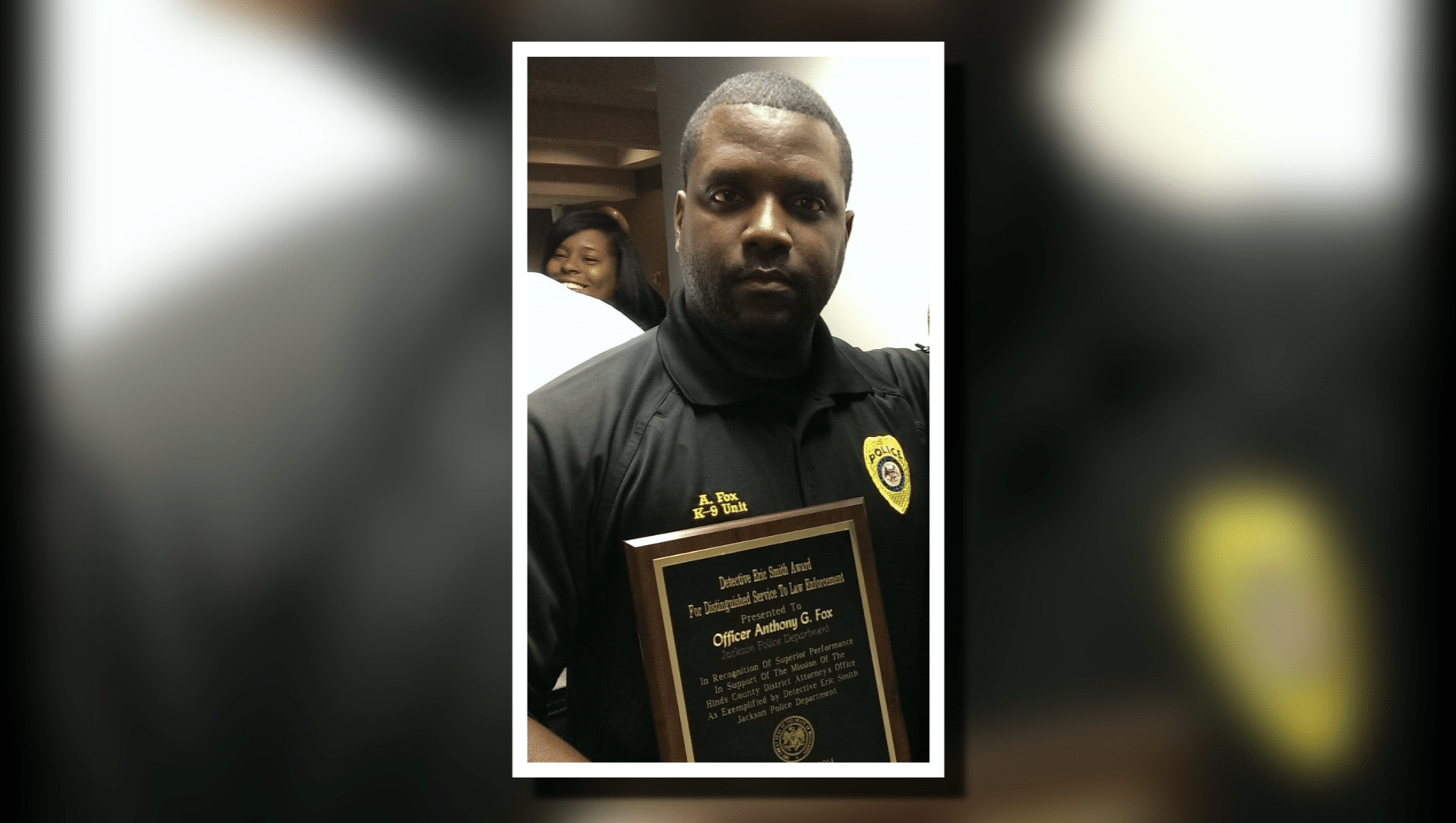Jackson police sergeant Lincoln Lampley spoke in court for the first time since he was accused alongside fellow officers Anthony Fox and Desmond Barney Tuesday morning in the remaining trial in the death of George Robinson.
Lampley was able to fill in some of the blanks in the events surrounding the night Robinson had an encounter with Jackson SWAT officers and died days later.
The prosecution tried to establish through two previous witnesses who said they saw Detective Anthony Fox beat, body slam, and/or stomp George Robinson after seeing what he thought was a drug deal in process that it was his use of force that ultimately fatally wounded the 62-year-old man. The Hinds County Coroner ruled the death was homicide by blunt force trauma, but state medical officials have been somewhat divided on the facts as one medical examiner began the case, and another finished the examination later from the first one’s notes.
The case has been controversial since day one and became even more so when Fox’s co-defendants’ case was dismissed with prejudice by Judge Faye Peterson. Peterson said the prosecution had failed to present adequate evidence to prove that Lincoln Lampley and Desmond Barney had in any way caused Robinson’s death. Judge Adrienne Wooten decided against releasing Fox’s case to Peterson to allow the three to be tried together.
Federal Judge Carlton Reeves also issued an opinion that Fox, Lampley, and Barney were protected by qualified immunity.
Attorney Dennis Sweet, who representes the Robinson family and has been a looming and influential presence throughout the criminal side of the case as well as the civil side, was seated prominently behind the prosecution Tuesday. He was banned from Barney and Lampley’s trial by Peterson after an altercation with one of the defense attorneys.
In opening statements, much discussion focused on whether Robinson seemed to have his wits about him when he left the scene, and what the circumstances were that surrounded the medical response to the scene. The prosecution made the actions of the paramedics seem both forced and sloppy at the same time, and the defense described it as a routine response in which the patient refuses care.
Ronnie Arnold and Connie Bolton told accounts of what they allegedly saw on the night of January 13, 2019. Both testified that they saw Fox as “the aggressor,” as Bolton put it. Bolton testified that she saw Fox raise his foot to stomp Robinson. Arnold did not report seeing that, though he said he saw everything from start to finish.
At issue as well was the subject of visibility. Bolton testified to her keen eyesight, but in the trial against Lampley and fellow co-defendant Desmond Barney, she misidentified someone else in the courtroom as Fox. She described seeing a tall man with a thick beard, but Lampley testified to Fox’s facial hair, if he had any at the time, as being low and clean cut.
Arnold testified that it was so dark he was having to grill burgers by the light of his cell phone flashlight, but said he could see because of the police car lights and a street light. Bolton said she saw Fox before it got dark, so she didn’t have to identify him after it got dark because she’d alread seen him. Neither said they saw Lampley assist Fox with taking Robinson out of the vehicle.
When Lampley took the stand, he told a different story. He said he and Fox got out of the same vehicle and Fox walked toward Robinson’s car while he walked toward the barbecue at Robinson’s house (the property was owned by Arnold). He said he heard a commotion and turned around to see Fox having a confrontation with Robinson.
Fox had Robinson by the left arm, he said, but Robinson was pulling away to reach down between the seats with both hands, seemingly to retrieve something. When Lampley saw that, he drew his gun to back up Fox. Shortly after that, he testified that he made the decision to holster his weapon, which he said deescalated the situation, and he came around the vehicle to help Fox remove Robinson from the car.
Arnold testified that he heard Robinson say he just had a stroke and he was moving slow, but that he was going to comply. Lampley did not report hearing that, nor was he asked about it.
Lampley said he put his body inside the car door, bumping Fox over, and moved Robinson’s head forward so he could reach his right shoulder. Fox and Lampley then removed Robinson from the vehicle, he said, and attempted to take him out standing.
“We’re trying to hold him up, he was using his weight to try to pull us down and he appeared to be hiding something with his hand,” Lampley said. “He was struggling to get down to the ground. We don’t want to go to the ground, we want to stay on our feet, and he was trying to do the opposite.”
Lampley said Robinson was moving his hands together toward his mouth and finally when his hands had reached his mouth he allowed them to cuff him. He told the court he had heard later that Robinson had swallowed something, but the prosecution grilled him on whether he saw it or heard it.
The prosecution objected every time something came up about Lampley having gone to trial or been indicted on the same charges as Fox, then the attorneys would all approach the bench, and the defense would pose a different question.
Most of the defense’s objections were overruled.
Court recessed after Lampley was released from the stand, but he is still under subpoena. The case will adjourn again Wednesday at 9 a.m.



















